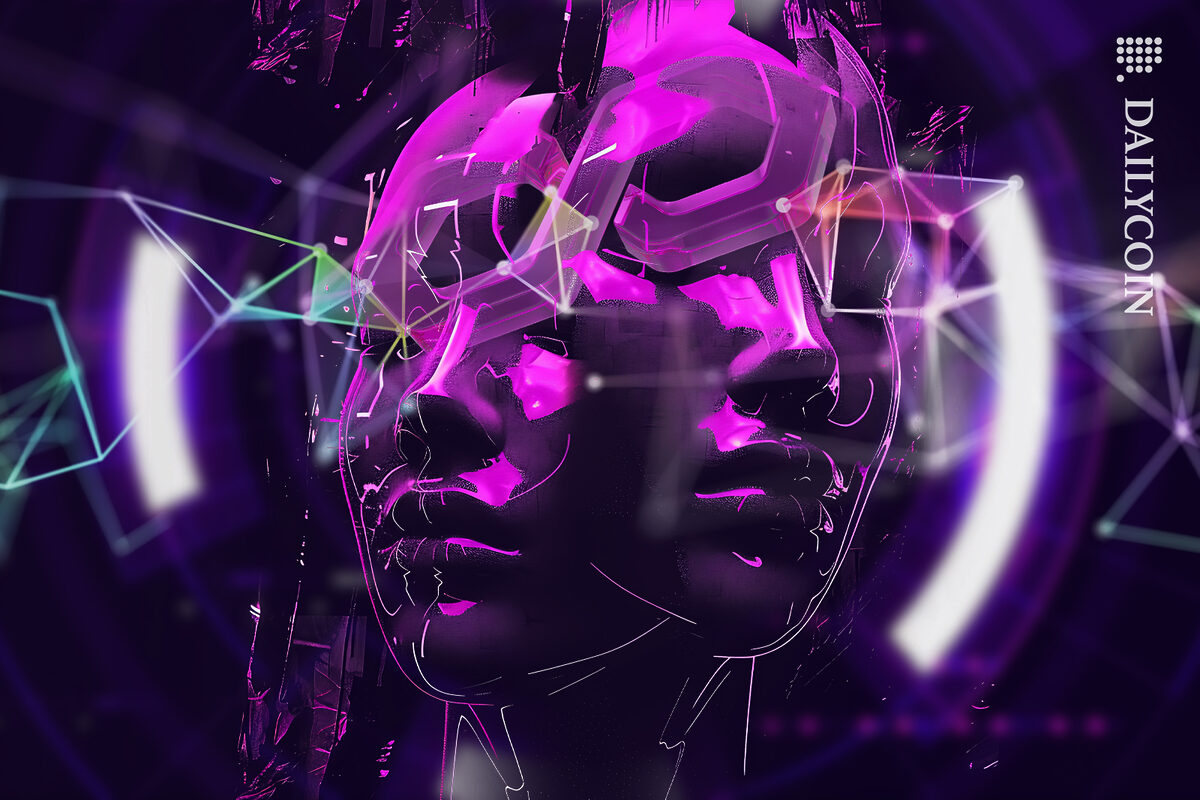1. What Is Floki (FLOKI)?


Floki (FLOKI) is the people's cryptocurrency and the utility token of the Floki Ecosystem. It is a cryptocurrency birthed by fans and members of the Shiba Inu (SHIB) community and is inspired by (and named after) Elon Musk’s Shiba Inu.
Musk is a prominent fan of Dogecoin, although he publicly denied owning any SHIB. Floki Inu is working on “four flagship utility projects:”
* An NFT gaming metaverse called Valhalla
* A suite of decentralized finance products launched under the "FlokiFi" umbrella.
* An NFT and merchandise marketplace called FlokiPlaces
* A content and education platform called University of Floki
The community calls itself the “Floki Vikings” in honor of Floki (Musk’s dog) that was named after a Viking character. Floki vows to take its community efforts seriously and has been listed several times in the Top 10 of LunarCrush’s social engagement leaderboards. Floki has also partnered with leading crypto projects that include Chainlink, Trader Joe, ApeSwap for its FlokiFi Locker digital asset locker protocol.
Floki is also sometimes referred to by some as "Floki Inu".
2. Who Are the Founders of Floki?


Floki is a decentralized community run project.
It was initially launched by an anonymous dev who abandoned the project shortly after it launched. The community rallied, took over, and relaunched the project -- making it a globally recognized crypto brand with 400,000+ holders in its first year.
Floki has a core team representing the interests of its community. The core team consists of pseudonymous personalities B, Sabre, and MrBrown Whale. The project’s lead developer is Jackie Xu, who, according to Floki, is a “well-respected and doxxed figure in the industry with over a decade of blockchain experience.” The team announced that Valhalla, the NFT gaming metaverse, was being developed by a team of 20 people with over 50 years of combined team experience.
Key decisions affecting Floki as a project are also made through a DAO vote where people vote with their FLOKI tokens.
3. What Makes Floki Unique?


Floki wants to set itself apart from other meme coins by combining the memes with utility. The team’s long-term vision is to create an autonomous and decentralized ecosystem, including strategic partnerships, building utility on the token itself, and developing use cases for the Floki brand through NFTs, games and decentralized finance features.
Its main flagship product is the NFT gaming metaverse called Valhalla. Floki Inu envisions it to be a play-to-earn gaming metaverse, where you can earn rewards for battling and trade or hold on to assets obtained in the metaverse. The team plans to take successful elements from games like Pokémon and Skyrim and incorporate them in Valhalla. Players will be able to capture and battle with creatures called Vera, and the game will also have a gardening system where players can tend to their crops, which can later be sold as NFTs. With Valhalla, Floki Inu tries to follow the path forged by games like Axie Infinity (AXS) that popularized playing and earning on the blockchain through games.
4. How Many Floki (FLOKI) Coins Are There in Circulation?


Floki has a total supply of 10 trillion FLOKI. According to BscScan and Etherscan, there are over 400,000 holders of FLOKI on Ethereum and BSC combined. Users can buy FLOKI on Uniswap and PancakeSwap, but each purchase incurs a 0.3% tax that will be used for the continued development of the Floki ecosystem.
5. How Is the Floki Network Secured?


FLOKI is both an ERC-20 token on Ethereum and a BEP-20 token on Binance Smart Chain.
ERC-20 is a token standard most new tokens follow when publishing on the Ethereum blockchain. Ethereum is one of the most popular blockchains and the go-to solution for many decentralized applications. Its proof-of-work consensus mechanism requires miners to mine new Ether and ensures that Ethereum is one of the safest blockchains in the crypto industry. A set of decentralized nodes validates transactions and secures the Ethereum blockchain.
BSC is secured through the proof-of-stake consensus mechanism. 21 validators are elected every 24 hours to validate transactions and maintain blockchain security. These validators have to stake a certain amount of BNB coins with Binance to be eligible.
6. Will Floki Reach $0.01?


Because of its extremely high supply, it’s unlikely that FLOKI will ever reach one cent. However, the token has been in a strong uptrend at the end of October 2021 and has been setting new all-time highs almost daily. Therefore, it is entirely realistic that FLOKI at least reaches 0.1 cents in the future.
7. Where Can You Buy Floki (FLOKI)?


FLOKI is available on Huobi, Gate.io, Bybit, Uniswap (V2), BKEX and PancakeSwap (V2).
Cryptocurrency newbie? You can read more about how to enter the market and how to buy FLOKI or any other token in the CoinMarketCap education portal — Alexandria.
8. Related Pages:


Check out Dogecoin (DOGE) — the most well-known meme coin.
Check out Shiba Inu (SHIB) — another dog-themed coin.
Check out Axie Infinity (AXS) — a popular play-to-earn game.
Learn more about the token in our deep dive about FLOKI.
Get the latest crypto news and latest trading insights with the CoinMarketCap blog.
9. What is Blockchain?


Blockchain is a decentralized and distributed ledger technology that securely records transactions across multiple computers in a verifiable and permanent way. It forms the underlying technology for cryptocurrencies like Bitcoin and enables transparency, security, and immutability.
10. What is Cryptocurrency?


Cryptocurrency is a digital or virtual form of currency that uses cryptography for security. It operates on decentralized networks, typically based on blockchain technology, and facilitates secure and transparent peer-to-peer transactions.
11. What is Bitcoin?


Bitcoin is the first and most well-known cryptocurrency, created in 2009 by an anonymous person or group known as Satoshi Nakamoto. It operates on a decentralized peer-to-peer network and is used for secure, transparent, and censorship-resistant transactions.
12. What is the difference between Bitcoin and Altcoins?


Bitcoin is the original and most widely recognized cryptocurrency, while altcoins refer to any other cryptocurrencies besides Bitcoin. Examples of altcoins include Ethereum, Ripple (XRP), Litecoin (LTC), and many others.
13. What is Staking?


Staking involves participants locking up a certain amount of cryptocurrency in a wallet to support the operations of a blockchain network. It is commonly associated with proof-of-stake (PoS) and delegated proof-of-stake (DPoS) consensus mechanisms, where participants receive rewards for helping secure the network.
14. How Can I Stake Cryptocurrency?


To stake cryptocurrency, you typically need to choose a platform or network that supports staking. Transfer your tokens to a compatible wallet, follow the staking instructions provided by the platform, and lock up the desired amount of cryptocurrency. Once staked, you may start earning rewards.
15. What Are Staking Rewards and How Are They Calculated?


Staking rewards are incentives provided to participants who lock up their cryptocurrency to support the network. The amount of rewards varies and is influenced by factors such as the network's inflation rate, the total amount staked, and the specific rules of the staking protocol.
16. Can I Unstake My Cryptocurrency at Any Time?


The ability to unstake and withdraw your cryptocurrency depends on the specific staking protocol and network. Some platforms may have lock-up periods or unbonding periods during which your staked tokens are inaccessible. Always check the terms and conditions of the staking service.
17. What are the Risks of Staking?


Staking comes with risks, including the potential loss of staked funds if a participant behaves maliciously or fails to fulfill their responsibilities. Market volatility can also impact the value of staked tokens. It's crucial to thoroughly research the staking protocol and understand the associated risks.
18. Can I Lose Money by Staking?


While staking is designed to be a rewarding activity, there is a risk of losing money, especially if the value of the staked cryptocurrency decreases or if the staking protocol encounters security issues. It's important to consider both the potential rewards and risks before participating in staking.





